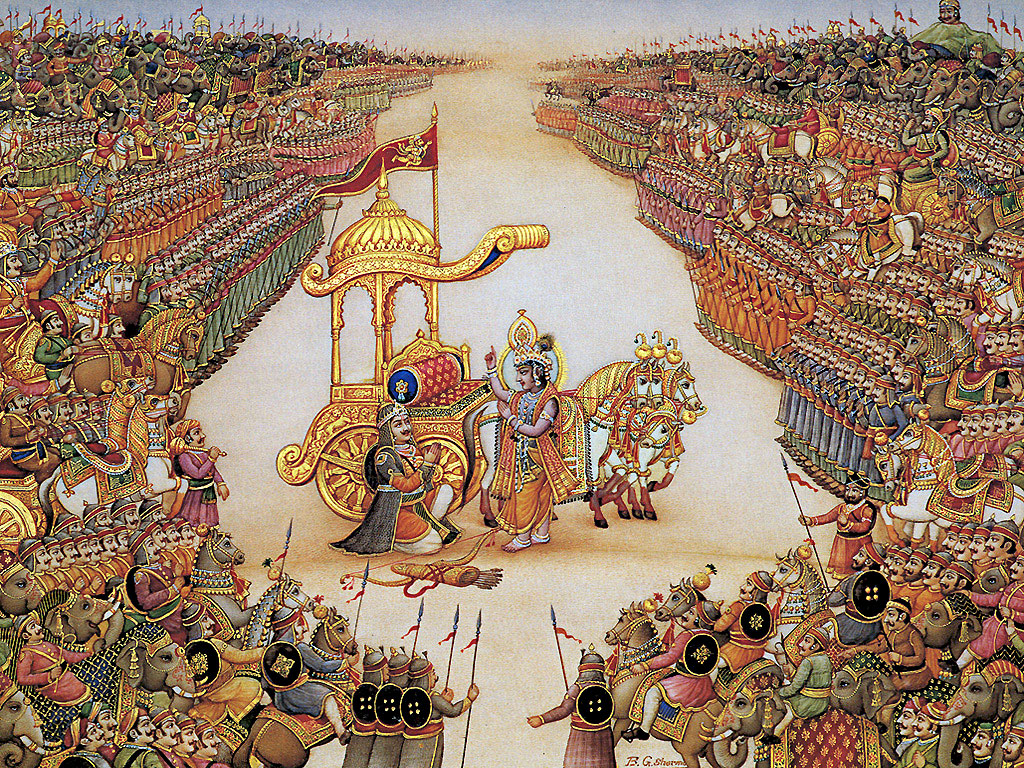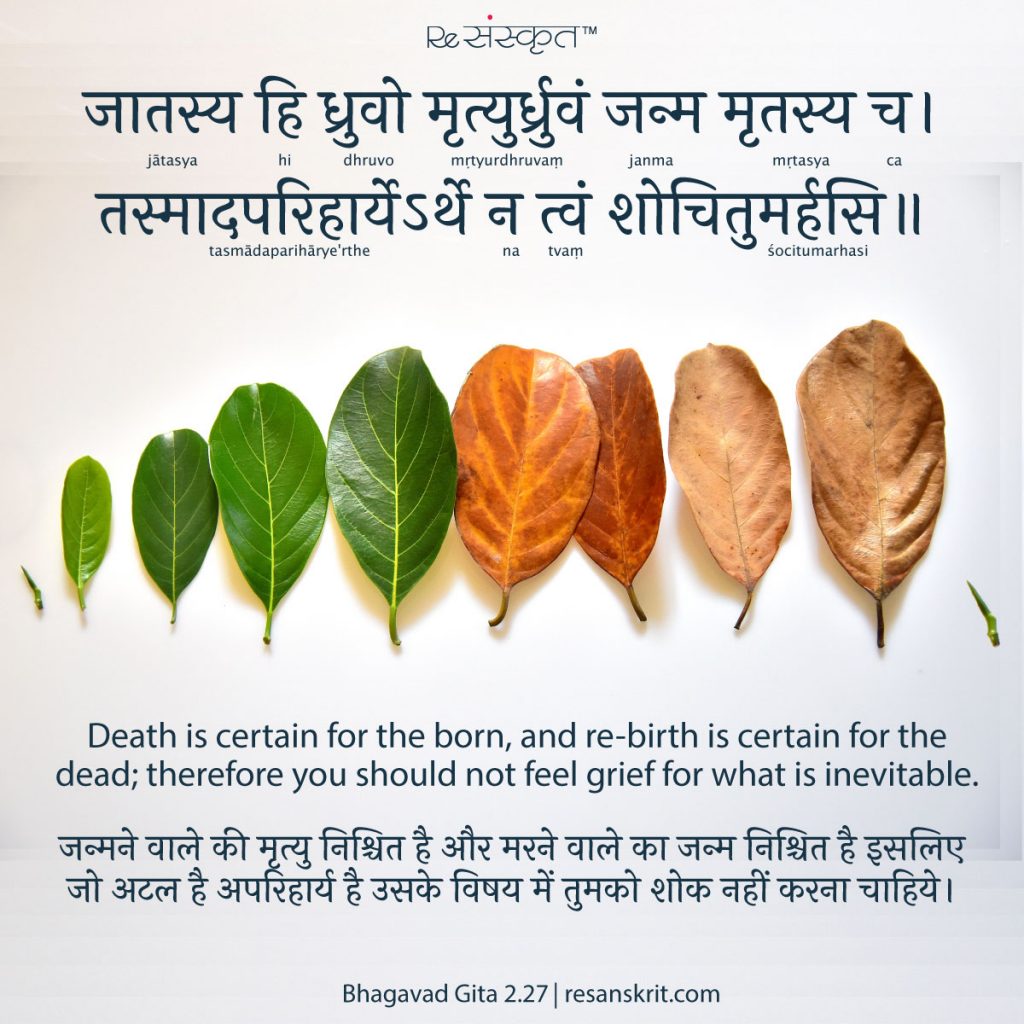Today is the 19th day, and I have two more to go. All these days, I didn’t plan my writings – I just penned down whatever came to my mind on that particular day. Now that there are three more days – here is what I feel I will write – day 21 will be a summary of all the days, my learnings and the few exercises that we tried out. Day 20 – a bit on food habits – langhanams – as they are called in Ayurveda. But today, I have to write about a subject that is very close to me – Śrīmad Bhagavad Gītā.

The Gītā has been seen as a religious text – a sort of canonical scripture that is the defining book of Hinduism. Some see as mythology, others as the word of God.
I am too small to comment on what the Gītā really is, but for me, I look at it as a guide to living.
You can interpret the Gītā at different levels – it really depends on the state of mind you are in, and what you are looking for at that stage in life. It may also depend on what you are suffering from – people usually turn to the divine and scriptures when they are disturbed, not when they are happy. Whatever the reason, the fact that you did open the Gītā in the first place, is a positive achievement it itself. It showed that you were willing to change, to listen, to adapt. It showed that you decided to help yourself.
Because, that is what the Gītā is also about – it has the tools and the methods, but you have to pick up your own bow and fight.

Most of our scriptures revolve around the central theme of the victory of good over evil. The Gītā too, is part of the Mahābhāratā, one of the greatest epics of all time. It makes an appearance bang in the middle of the war-field. Both armies – the Kauravās and the Pandavās – are ready to fight – they stand facing each other at Kurukṣetra, conches have been blown, and a bloody battle is about to start. What an unlikely stage for the greatest discourse of all time!
Or is it?
We face this battle everyday. Every moment of our lives. The good inside us, and the evil inside us, our mind being the battlefield – we are constantly waging this war, isn’t it? Every decision we make, every step we take, is a struggle between what is good for us and what is good for the collective. Our ego and selfishness want the best for us, at the expense of not just the greater good, but sometimes, at the expense of our friends and even family. Self-preservation is what takes precedence, and when this happens on a collective basis, we come to where we are at present – a world torn apart by distrust, a society driven by excess consumption and disregard for the environment, and a default state of unhappiness.
Yes, that is our default state.
We are unhappy, and so we look for things that make us happy. What if our default state was happiness, and that remained unchanged until something tried to make us unhappy?
Wouldn’t that be a better way to live?
The Gītā for me, is a representation of that inner battle. The tools and methods are present in our inner Self, the Śri Kriśnā inside us, and we can change the desperate look for guidance outside, to a look within us, to discover these methods. The Gītā does not alleviate our suffering – it helps us understand how we can not only overcome our troubles, but see the world, see life, for what it really is. It provides us tools for moving from competing with everyone else, to completing them. It provides not one, but many ways to find your own Self. Karma Yoga – if you can work tirelessly and detach yourself from the reward. Kriya Yoga – if you can practice meditation and prānāyāma, Gyana Yoga – if you can practice self-questioning and inner reflection and Bhakti Yoga – if you can surrender yourself to the universal consciousness. Many methods – but one destination. And choose any method – you have the guide, but you have to embark on the journey yourself.
No one will fight your battles for you. The Gītā outlines the battle plan, gives you the maps, weapons and strategies necessary for you to win – but you have to do the fighting.
If we fight others, we cannot but lose, but if we choose to fight the evil in us, we cannot but win.

My feathered friends have always been dear – they do not think of themselves as distinct from us. Yes, they are afraid of us, given how we have treated nature in the past few hundred years. But open your heart to them, and they will sing for you, like they did for me today…
